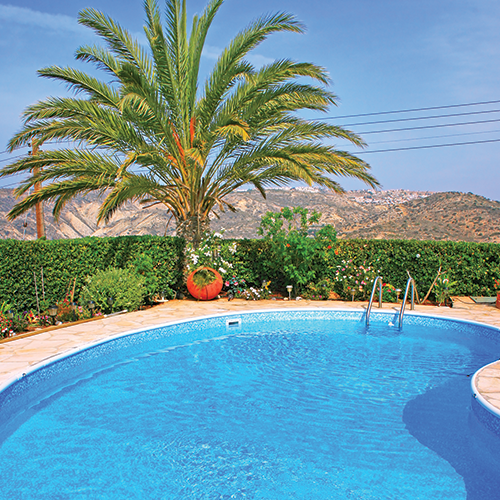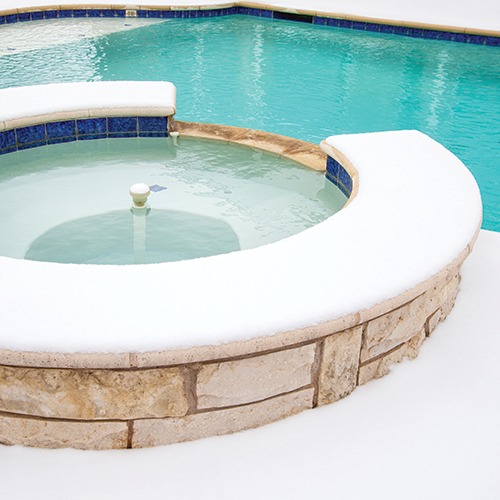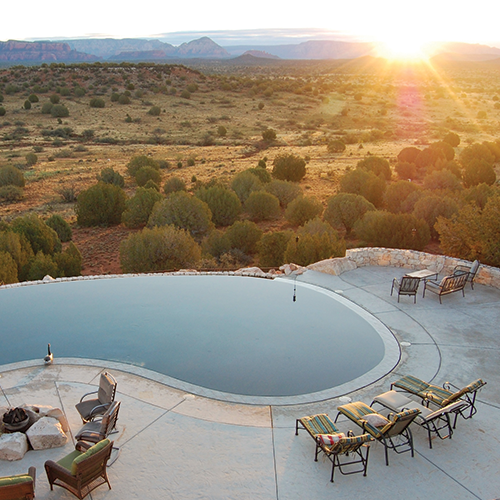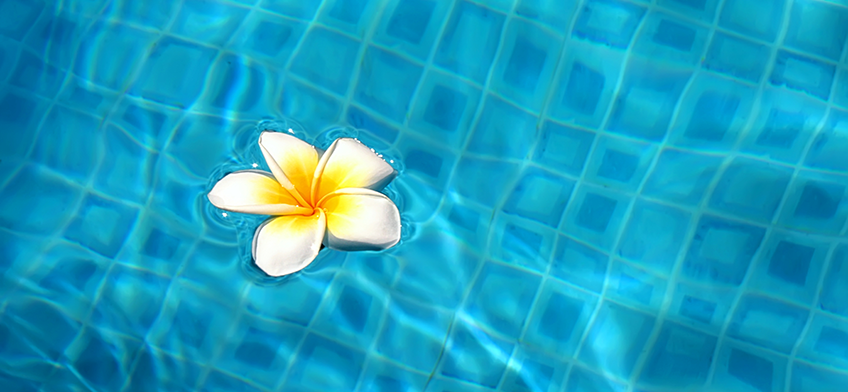Are you familiar with the terms Sunbelt and Snowbelt? They are actual terms that are used in the United States. These important terms affect you and how you should actually be taking care of your swimming pool. So now we figure out which one of these terms that affects you and your situation. Where you live determines on how you should take care of your swimming pool and maintain it.


The Sunbelt
The Sunbelt is actually an imaginary line that separates the southern part of the U.S. from the northern area. In the Sunbelt, temperatures seldom fall below freezing and snow is often hard to come by. However, the Sunbelt areas are very susceptible to extremely hot and prolonged summer heat and often experience a drought. Your pool shape and design choices are fairly open in the Sunbelt.
Gunite pools are ideal for extremely hot temperatures because you don’t have to be concerned about the expansion and contraction that happens when temperatures drop below freezing temperatures. Gunite, vinyl and fiberglass swimming pools can be built with many features, some of these being; accent water, rock features, and fire. All of which showcase and compliment the Sunbelt’s beauty. For example, aggregate pool finishes and features are a gorgeous addition that compliment any pool located in the American Southwest.

Swimming Pools in the Snowbelt
To be expected, the Snowbelt is the exact opposite of what the Sunbelt has to offer in terms of geography. The Snowbelt area of the U.S., is the locations where there are prolonged days of freezing temperatures during the fall and winter months. Due to the extremity of the weather, the ground often contracts when the temperatures fall below freezing, and then it expands as the weather warms up during the day. A Gunite pool provides you with flexibility when looking at pool design, but is usually not the best option when you live in the Snowbelt. Gunite swimming pools often crack when the ground does the expansion and contraction movement.
On the other hand, vinyl swimming pools are comprised of a stretchy plastic material and are fitted over pool walls that are made of steel or other hardy materials. Fiberglass pools are also a very flexible choice. Fiberglass is a shock absorbent material, and is reported to flex up to two feet. Fiberglass and vinyl swimming pools have the capacity to flex in certain conditions, which make them the ideal option for homes that are located in the Snowbelt. Don’t let cold temperatures scare you away from getting a swimming pool!
As we all know, living in the Snowbelt, there’s always looming snow or ice storms during the winter season. Even if the pool may be closed, the harsh winter conditions can take a toll on your pool’s motorized parts. In the event of a winter storm:
- Make sure you took precaution, and properly winterized your pool.
- Make sure your swimming pool cover is firmly in place to withstand the piling of snow or vigorous wind.
- Shield your swimming pool pump, filter and other motorized parts from weather conditions and check on them periodically to make sure everything still appears okay.

Swimming Pools in the Desert
One main advantage of owning a swimming pool in the Sunbelt is the possibility of being able to swim year-round. Since there is no threat of freezing temperatures, it allows you to leave your pool open and available. During drought periods in the Sunbelt area, it’s important that you take care of your pool to prevent damage to surrounding areas such as the pool’s deck, finish, and motorized parts. To avoid damage to your swimming pool during a drought, take these precautions:
- Make sure to maintain the water level at the bottom of the drainage gate, water evaporation happens quickly during drought conditions and if it gets any lowers, damage can occur.
- Keep your soil conditions consistent around your swimming pool area. Pool decks can crack or shift during a drought due to soil contracting and expanding.
- Water your grass during the night around your pool, when temperatures are cooler to help prevent swift water evaporation and soil drying.
Being a pool owner is something you should be proud of and have fun doing! Having the opportunity to come home and hop in the pool after a long and hard day is very rewarding. But, it’s always a good idea to think about where you live geographically and how it will affect the way you take care and maintain your pool. Take this advice and use it to your advantage! Give us a call if you have any questions on how you should be taking care of your pool that correct way for your area and geographic location.

